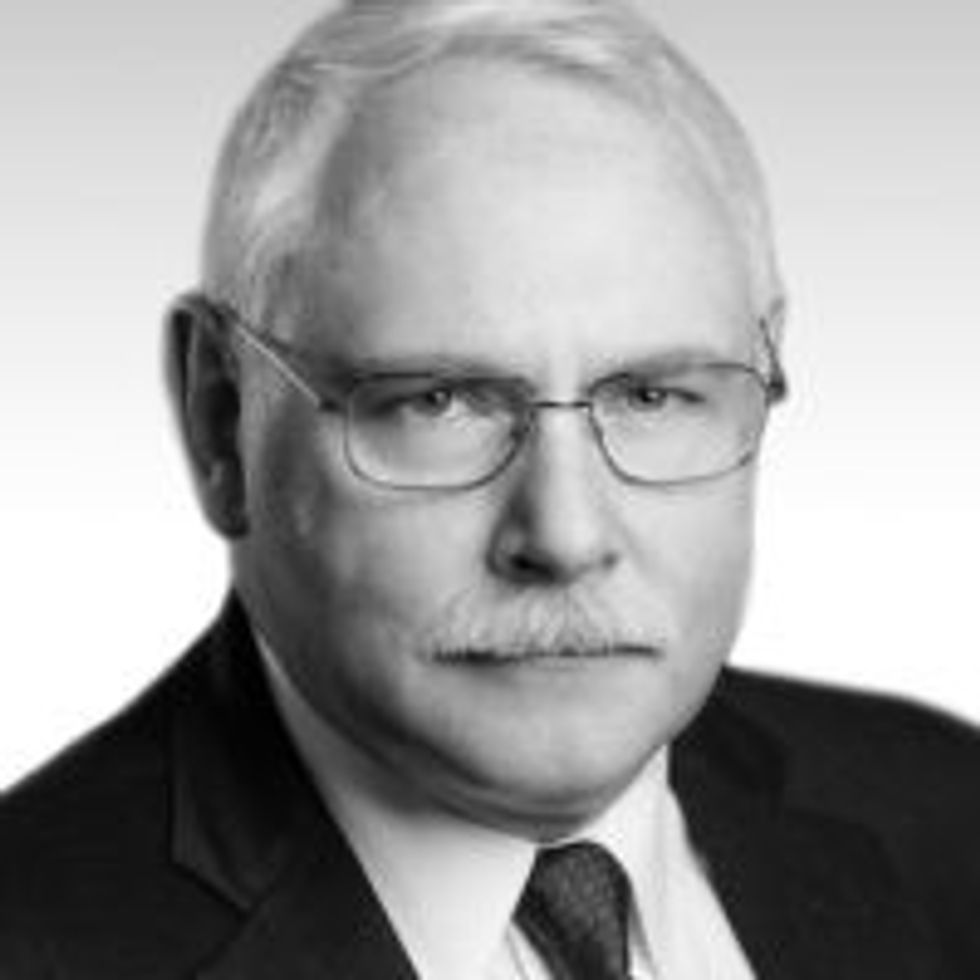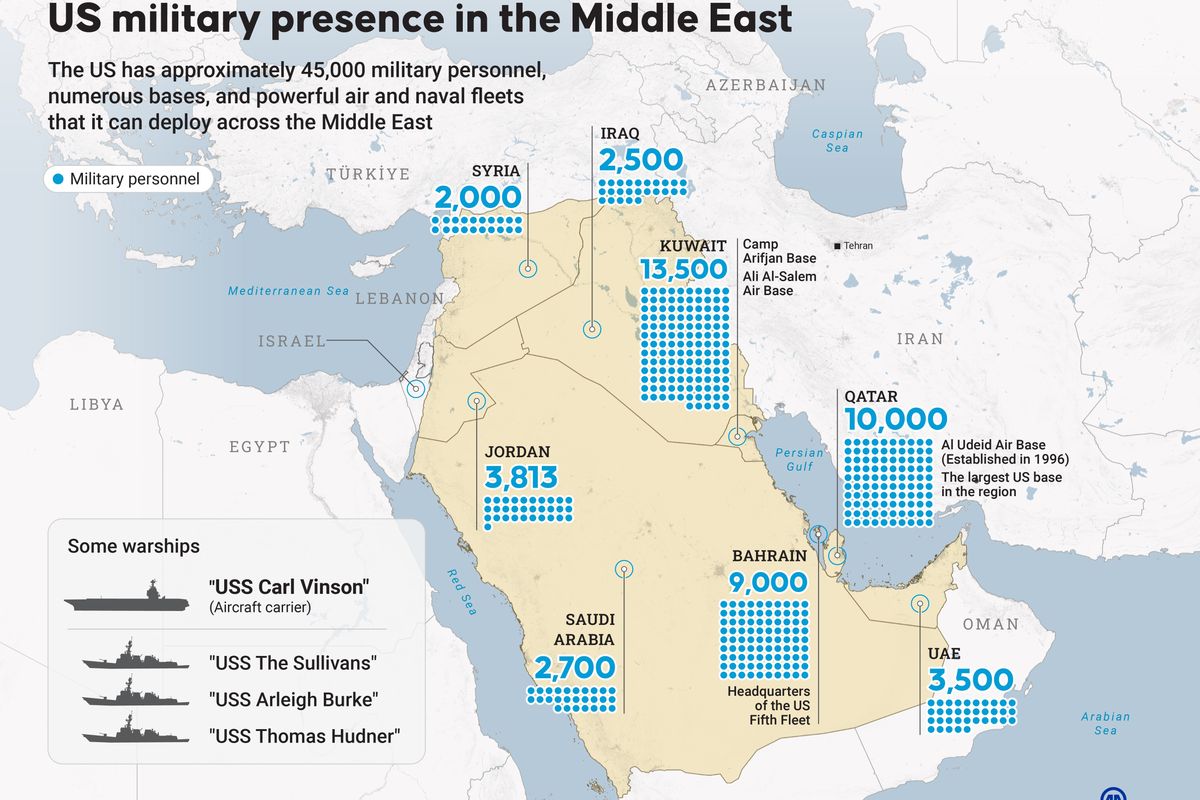The impressive string of world leaders visiting the UAE following the recent death of Sheikh Khalifa bin Zayed, made clear that the UAE plays an outsized role in regional and global affairs. The U.S. in particular, has a keen interest in maintaining and strengthening ties with new UAE President, Sheikh Mohammed bin Zayed Al Nahyan as an ally in diplomatic and military matters and as a partner in current and future energy supply and innovation.
The Cipher Brief talked about what this means and what comes next with Middle East Expert Norm Roule, who served as the National Intelligence Manager for Iran at ODNI and since retiring, travels extensively through the region for meetings with top regional leaders.
Norman T. Roule, Energy Expert, former National Intelligence Manager for Iran, ODNI
Norman T. Roule is an energy expert who served for 34-years in the Central Intelligence Agency, managing numerous programs relating to Iran and the Middle East. He served as the National Intelligence Manager for Iran (NIM-I) at the ODNI from 2008 until 2017. As NIM-I, he was the principal Intelligence Community (IC) official responsible for overseeing all aspects of national intelligence policy and activities related to Iran, to include IC engagement on Iran issues with senior policy makers in the National Security Council and the Department of State.
The Cipher Brief: What are the prospects for broadened U.S.-UAE ties, and what are the incentives and obstacles to stronger bilateral relations in the future?
Roule: The rank and stature of the U.S. delegation that traveled to the UAE following the passing of UAE President Shaykh Khalifah bin Zayed was significant. The list of officials chosen to be part of this delegation tells us why the relationship is vital to Washington. The group included our senior-most officials on foreign policy, national security, and energy issues.
The security angle is easy to understand – the UAE is a trusted and valued partner and earned that reputation. The enemies of the UAE are our enemies, and Abu Dhabi has deployed personnel to fight with our forces on multiple occasions.
Energy discussions with the Gulf appropriately center on oil and gas. By late 2022, the UAE and Saudi Arabia will likely be the only remaining members of OPEC with spare production capacity. But the UAE's green energy efforts are respected for their ambition and prospects, as shown by the presence of former Secretary John Kerry. Secretary Kerry has made multiple trips to the GCC, and my understanding is that he has been impressed by their investment in climate change technologies. The U.S. has also been impressed by the Emirati commitment to interfaith and multicultural engagement and its role in the development of the Abraham Accords.
The Cipher Brief: What do you see as the obstacles to smooth bilateral relations between the U.S. and the UAE in the near future?
Roule: The issue of Iran's regional aggression and that of its proxies remains foremost here. The Gulf Cooperation Council countries understand that Tehran will continue to threaten their economic and social progress. The U.S. naval presence in the region has remained a potent demonstration of security commitments. We should also recall that the UAE, Saudi Arabia, and other GCC countries obtained the weapons and training they use to defend themselves from Iranian missiles and drones, from the United States and Europe.
The Cipher Brief hosts expert-level briefings on national security issues for Subscriber+Members that help provide context around today’s national security issues and what they mean for business. Upgrade your status to Subscriber+ today.
Related to the above is how the West approaches Iran's proxies. The U.S.’ unwillingness to redesignate the Houthis as terrorists and the debate over the possible removal of the Foreign Terrorist Designation is noteworthy. There is a sense among some in the region, including the UAE, that our approach to these issues sometimes has more to do with our domestic politics than the regional realities they confront each day.
The Cipher Brief: The 2020 Abraham Accords redefined UAE relations with Israel and other key partners in promoting Middle East peace and stability. Can this diplomatic framework provide even further foundations for political, military, and economic advances and relationships, and what would be the UAE's potential role?
Roule: The Abraham Accords are already achieving their potential in trade as well as cultural and security discussions. We should expect more engagement in medical and pharmaceutical projects, tourism, and cyber defenses. Security cooperation will expand, but more slowly and carefully than some commentators suggest. We will likely see the UAE support increased regional engagement with Israel. At the same time, I am confident Abu Dhabi fully understands that the pace of each country's relations with Israel will follow their individual political DNA and national security interests.
The UAE's large capital base, its educated and diverse population, ambitious private-sector plans, and emphasis on technology enhance the potential of the Abraham Accords.
Increasingly, I am seeing interest in trilateral engagement between the actors in the U.S. and Europe, Israel, and the Gulf. These remain early days, but there is no reason this transformational engagement shouldn't continue on its present course.
The Cipher Brief: What might be Sheikh Mohammed bin Zayed’s priorities in regional and world affairs? As the nation's leader with the world's fourth-largest wealth fund and as the architect of important trade and diplomatic relations in recent years, what particular issues are at the top of his agenda, and how might his new role position him to pursue specific initiatives?
Roule: I don't see the drivers for any significant shifts in the UAE’s foreign policy. The UAE has repeatedly stated that it prefers that the United States remain its primary security partner. Energy economics and trade mandate a strong relationship with China. Russia and Iran are relationships to be managed. The question is more about where the U.S. wants the relationship to go and what it is willing to do in this engagement. Looking outward, I think we should expect greater engagement with India in the UAE and the Gulf in general. The Emirates is likely to continue – with U.S. support – its efforts to push development in Africa to counter instability and ISIS.
We should expect further UAE (and Saudi) investments in agribusiness, cyber defense, green energy, artificial intelligence, logistics, tourism, and medical fields domestically and abroad in the private sector. The goal of these investments is employment and social transformation. Investment in Europe should likely be robust, much as we have seen with recent investments in Greece and even first steps in Turkey.
The countries of the Middle East are in an intense competition for Foreign Direct Investment. The Emirates knows that FDI may go where desired, but it only stays where it is treated well. Crown Prince, Shaykh Mohammed bin Zayed has approved reforms to make the UAE a more attractive hub for capital, and I expect this trend to continue. And further steps to welcome expatriates into an increasingly digital economy are likely.
Read more expert-driven national security insights, perspective and analysis in The Cipher Brief because National Security is Everyone’s Business.















